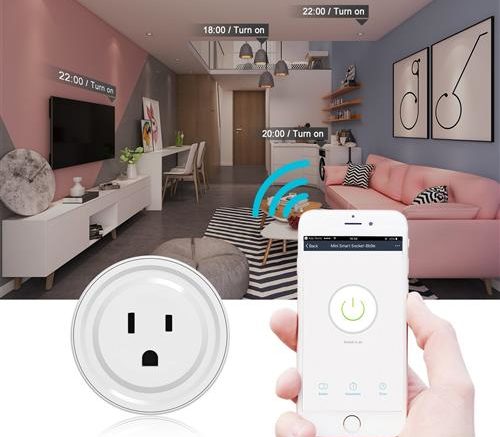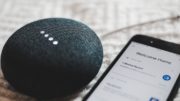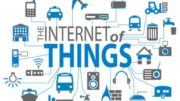Believe it or not, it’s been ten years since the launch of the original Amazon Echo. In the beginning, it was a fairly self-contained device. It would be another four years before we started to see Alexa-enabled smart devices and the development of “skills” that would let the smart home assistant actually control anything but itself.
Google followed suit with a smart speaker, and by 2018 the two technologies were fighting head to head. Apple followed suit, with their HomeKit protocol in development since 2014. All of a sudden it seemed like the future would be voice-controlled and internet connected. Except, it didn’t work out that way.
A strange turn of events
For most of the last six years, you’ve had two choices, You could choose a high-quality device from a known manufacturer that usually only talked to one of the three systems (Apple, Google, or Amazon) or you could choose a lower-quality off-brand item that had compatibility with all three. It obviously wasn’t hard to build in that compatibility because by 2021 there were hundreds of low-end devices that would work with every type of smart home. Still, complex contracts kept big manufacturers aligned with only one standard.
That wasn’t the only problem. Smart home devices were supposed to be easy to pair. And, in theory, they were. Generally just scanning a QR code with your phone’s camera was all it took. Except of course when nothing worked. Because most smart devices had no buttons or controls, your options boiled down to resetting and trying again. Smart home systems randomly went offline, stopped working after power failures, and just proved themselves too flaky to depend on. Sure, it’s great if your oven can send you an alert if it’s left on, but if you can’t depend on that alert it’s just useless.
Mind over Matter
The makers of smart home tech knew there was a problem. Industry fragmentation was going to kill the whole smart home idea. Even though Amazon’s Alexa clearly had the lead with double the number of devices as Google (and 20x the number as Apple), the perception was that you’d never be able to get the device you really wanted if you only had one system.
All the major smart home manufacturers, including long time advocates like The Zigbee Alliance, came together to create a new standard they could all stand behind. This wouldn’t be a superset of older tech. It would be a whole new thing. It was called Matter.
Matter promised to make everything easier. Major hubs like the Apple TV and Echo were upgraded to Matter compatibility, and theoretically all you had to do was reset a device and re-add it and it too would work. Except, it didn’t work like that. Older devices didn’t work with the new standard. The overall feeling is that Matter isn’t really complete and that using Matter with your devices would take away key functions. I can attest to that being true.
In other words, it didn’t matter. (Couldn’t resist.)
Is it truly better to try and fail?
So here we are in 2024 and I hate to say it. The smart home landscape is worse than ever. Instead of three competitors (Apple, Amazon, and Google) there’s now a fourth (Matter.) Ideally a new smart home user would always pick Matter and move forward, but that could mean even flakier devices than before. Confidence in smart homes among my friends is at an all time low. Despite it being easier to install smart plugs than ever, they’re less likely to fly off the shelves. No one talks about Alexa any more, never mind actually talking to Alexa. Siri’s fallen way behind, and Google’s smart assistant never got traction.
I think the fact that Matter stumbled out of the gate actually set smart home tech back more than if it didn’t exist. Major manufacturers seem to be retreating away from universal compatibility, and back toward using their own apps. That’s great if you have a Samsung TV, refrigerator, washing machine, and phone. It’s not so great if like most of us you’re far less brand-loyal.
2024: Make or Break
Two things need to happen in 2024 in order to get smart homes back on track. The first is that Matter needs to work. It needs to work by itself, and it needs to fall back on HomeKit, Alexa, and Google Nest when it can’t give you full function. There needs to be a way to support the hundreds of thousands of smart plugs and appliances out there with Matter. No one wants to walk away from the expensive stuff they put in.
The other is that there needs to be a good reason. Right now you can tell how much longer the washing machine will take from your chair. Is that really a good reason to invest the extra effort? There needs to be a good reason for smart home tech to exist, and that reason needs to be tied to Matter.
Arguably the most popular smart home device right now is a camera-enhanced doorbell. Whether you choose the most common one or something else is up to you. The one thing that’s true of all smart doorbell systems is that none of them work with Matter. Matter just doesn’t support cameras, and it won’t until its next version rolls out. That’s a problem if you’re trying to care about a new standard.
Until you can retire the Ring app and the Alexa app and replace them both with an app that supports Matter, there’s no point. It’s just that simple. And if that doesn’t happen this year, no one is going to care about Matter. There, I said it.
My hopes
I hope that smart home tech can get it together this year. Smart outlets are here, and they’re not much more expensive than any quality outlet. You can control a lot with an app like Apple Home, Google Nest, or Alexa, but you can’t control enough. You can’t even necessarily control a garage door, which is another device that would be really nice to know if you left open.
I hope it all gets sorted this year and that I can come back in 12 months and be really excited about it all. But I’m tempering that hope with common sense. What about you?





